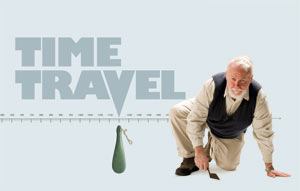
 Glenn Summerhayes
Glenn Summerhayes
Archaeology
Staff
When you think “colonisation” and “the Pacific”, you might think of Europeans settling in droves over the past two centuries. But what about the “colonisation events” of 3000 years ago? Or 40,000 years ago? These are the periods that fascinate Anthropology Professor Glenn Summerhayes, who has spent much of his adult life exploring “the archaeological wonderland in our own backyard”.
The Pacific's first people entered from Africa, 40,000 years ago, he explains, while the region went through a significant population explosion around 3100 years ago with people arriving from “maybe Taiwan, maybe New Guinea and probably both”. These became known as the Lapita. And, happily for Glenn, as they travelled “they left their garbage behind”.
Studying our prehistory – history before the written record – is part time travel and part detective work.
“From bone samples we have an idea of what the Lapita people ate. By examining soil layers we can learn what plants they brought and what was already there. By looking at similarities between modern languages – there are over 900 in Papua New Guinea alone – we can get a sense of the paths taken by migrants as they dispersed through the region.”
Glenn is often joined on his research trips by senior students: “We stay in bush houses with no electricity and eat the most fantastic food”. And he believes that the Melanesian section of the Otago Museum, right next to the University, is perhaps “the best of its kind in the world”.
Studying ancient Pacific peoples has led to a rethink of the story of human civilisation. “Textbooks tended to treat history as if it only happened in Europe. We now know that Papua New Guinea has the world's oldest agricultural system, predating Europe by about 2–3000 years.
Glenn says that this learning is a source of great pride for Melanesians. “Archaeology is a two-way process. We work with communities, train local archaeologists and we respect the fact that our research is people's history and identity.”
“Archaeology is about unlocking the past – it's a huge privilege.”